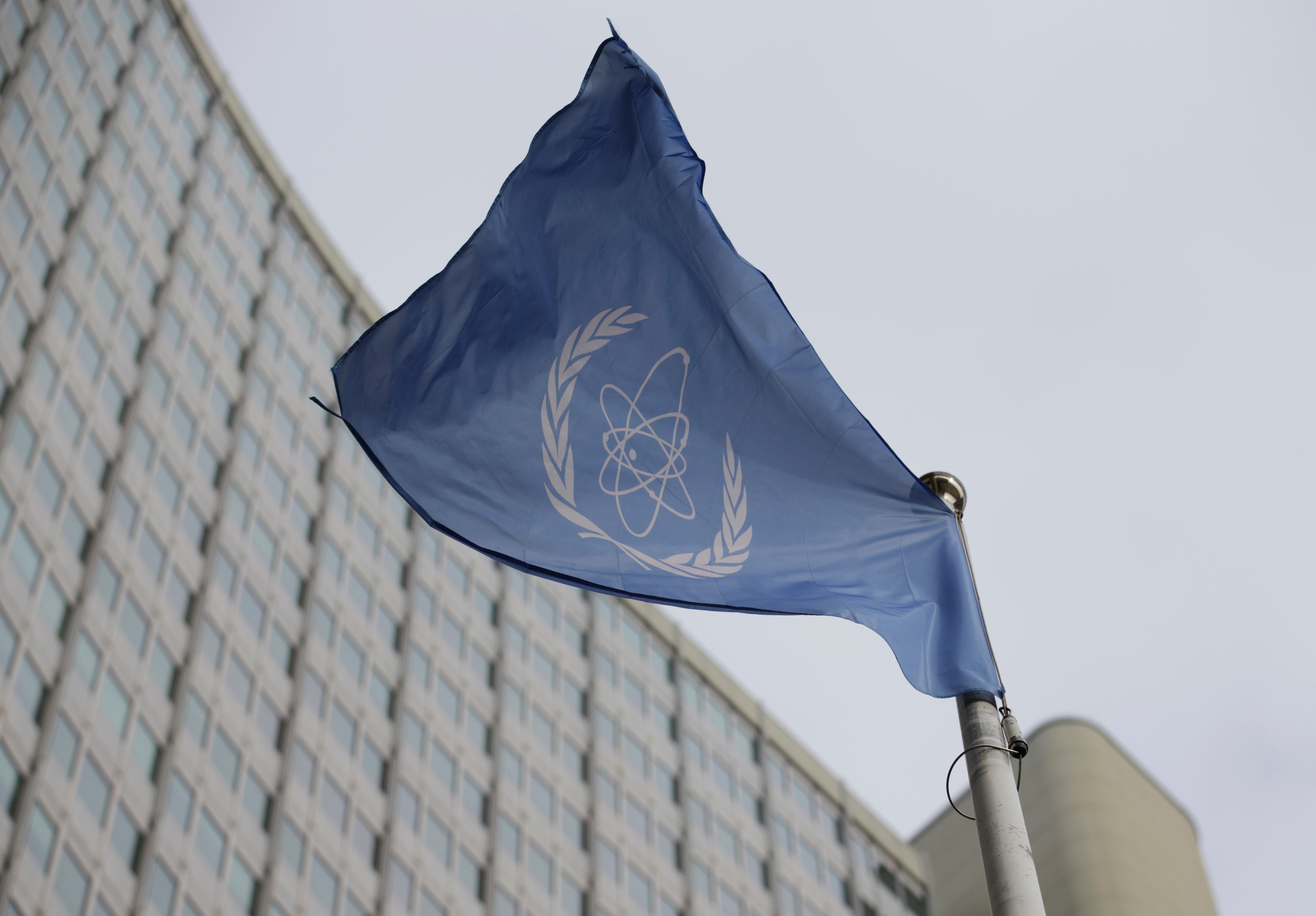UN nuclear watchdog report seen by AP says Iran slows its enrichment of near-weapons-grade uranium
A U.N. reports shows that Iran has slowed the pace at which it is enriching uranium to nearly weapons-grade levels

Your support helps us to tell the story
From reproductive rights to climate change to Big Tech, The Independent is on the ground when the story is developing. Whether it's investigating the financials of Elon Musk's pro-Trump PAC or producing our latest documentary, 'The A Word', which shines a light on the American women fighting for reproductive rights, we know how important it is to parse out the facts from the messaging.
At such a critical moment in US history, we need reporters on the ground. Your donation allows us to keep sending journalists to speak to both sides of the story.
The Independent is trusted by Americans across the entire political spectrum. And unlike many other quality news outlets, we choose not to lock Americans out of our reporting and analysis with paywalls. We believe quality journalism should be available to everyone, paid for by those who can afford it.
Your support makes all the difference.Iran has slowed the pace at which it is enriching uranium to nearly weapons-grade levels, according to a report by the United Nations’ nuclear watchdog seen by The Associated Press on Monday. That could be a sign Tehran is trying to ease tensions after years of strain between it and the U.S.
The confidential report comes as Iran and the United States are negotiating a prisoner swap and the release of billions of dollars in Iranian assets frozen in South Korea. However, international inspectors also noted new challenges in trying to monitor Iran's program.
In an effort to prevent Iran from developing atomic weapons, world powers struck a deal with Tehran in 2015 under which it agreed to limit enrichment of uranium to levels necessary for nuclear power in exchange for the lifting of economic sanctions. U.N. inspectors were tasked with monitoring the program.
Then-President Donald Trump unilaterally pulled the U.S. out of the accord in 2018, saying he would negotiate a stronger deal, but that didn’t happen. Iran began breaking the terms a year later.
The International Atomic Energy Agency said in its report that Iran has 121.6 kilograms (268 pounds) of uranium enriched up to 60%. That means its stockpile of the fuel is growing at its slowest pace since 2021.
A report in May put the stockpile at just over 114 kilograms (250 pounds). It had 87.5 kilograms (192 pounds) in February.
Iran’s mission to the United Nations in New York did not immediately respond to a request for comment Monday.
Uranium enriched at 60% purity is just a short, technical step away from weapons-grade levels of 90%. Iran has maintained its program is peaceful, but the IAEA's director-general has warned Tehran has enough enriched uranium for “several” nuclear bombs if it chose to build them.
Iran likely would still need months to build a weapon. U.S. intelligence agencies said in March that Tehran “is not currently undertaking the key nuclear weapons-development activities that would be necessary to produce a testable nuclear device.” The IAEA, the West and other countries say Iran had a secret military nuclear program it abandoned in 2003.
Overall, the IAEA report estimated Iran's total enriched uranium stockpile at 3,795.5 kilograms (8,367 pounds). That's a drop from the last IAEA report, which put the stockpile at 4,744.5 kilograms (10,459 pounds). The stockpile reportedly declined because Iran diluted some of its enriched uranium.
U.S. President Joe Biden has said he'd be willing to re-enter a nuclear deal with Iran, but formal talks to try to find a roadmap to restart the deal collapsed in August 2022. In the time since, Oman and Qatar have mediated indirect talks between Iran and the U.S. that led to the current planned prisoner swap and asset release.
Under that proposal, anywhere from $6 billion to $7 billion, depending on exchange rates, would be changed from South Korean won into euros. The cash represents money South Korea owed Iran — but had not yet paid — for oil purchased before the Trump administration imposed sanctions on such transactions in 2019.
The U.S. maintains that, once in Qatar, the money will be held in restricted accounts and Iran will only be able to use it for humanitarian goods, such as medicine and food. Those transactions are currently allowed under American sanctions targeting the Islamic Republic over its nuclear program.
In exchange, Iran would release five Iranian-American prisoners now under house arrest. The U.S. likely will release Iranian prisoners as well, though those details remain murky. If that deal goes through, it could improve the chances of overall talks on the nuclear deal resuming — though Biden already faces strident criticism from Republicans and others over the prisoner swap.
While Iran has slowed enrichment, the IAEA reported other problems with trying to monitor its program. The report from the watchdog seen by the AP said Iran had denied visas for agency officials and affected their ability to work in other ways as well.
Iran has not acknowledged the visa denials.
The IAEA also hasn't been able to access surveillance camera footage since February 2021 under Iranian restrictions, while the only recorded data since June 2022 has been from cameras at a workshop in the Iranian city of Isfahan.
___
Associated Press writer Jon Gambrell in Dubai, United Arab Emirates, contributed to this report.